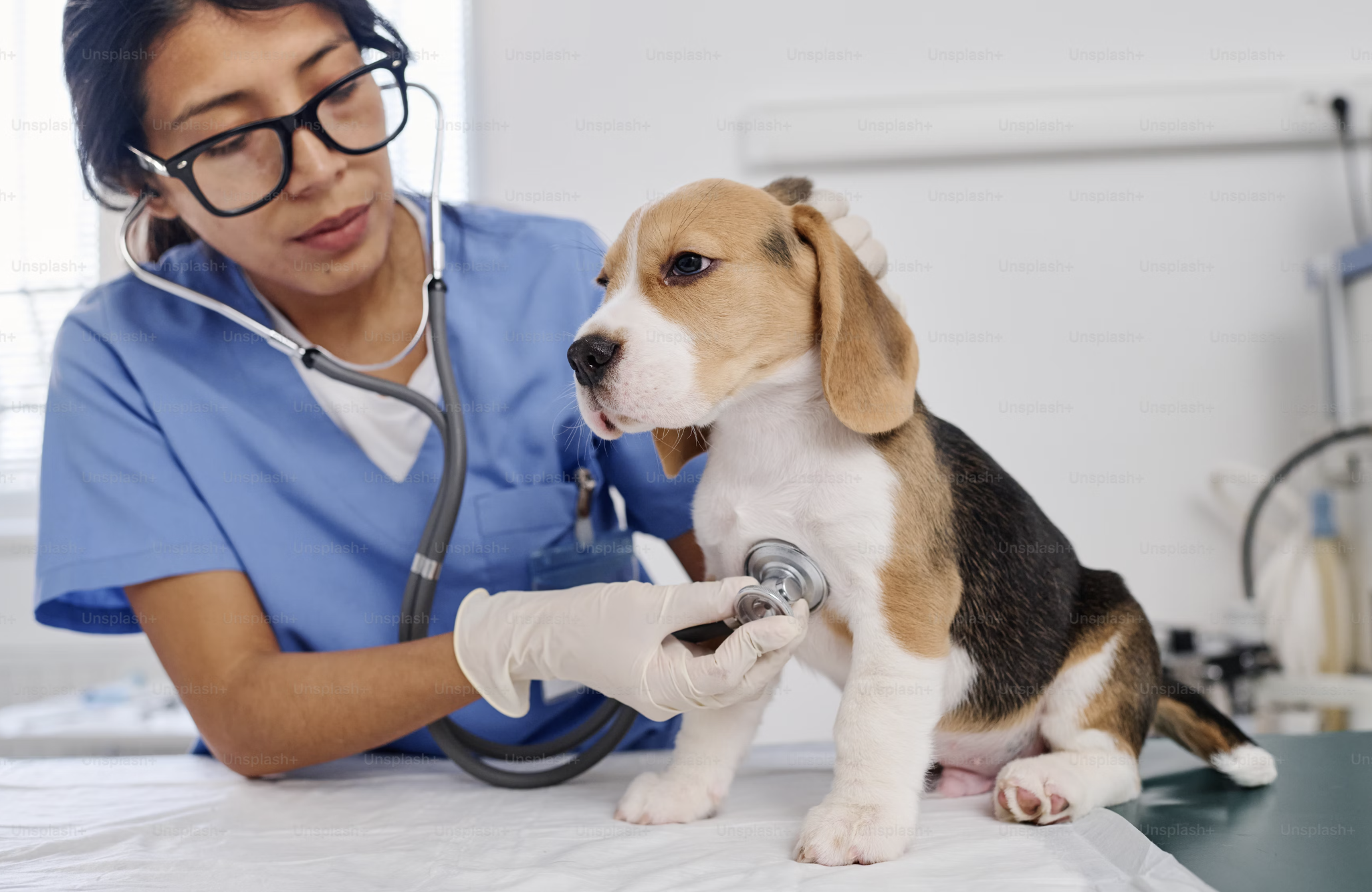Health + Wellness
Understanding your dog's wellness needs and prioritizing regular veterinary check-ups are essential for maintaining their overall health and detecting any potential issues early on. By scheduling biannual visits to your veterinarian, you can stay proactive in managing your dog's well-being and address any concerns promptly. These check-ups allow veterinarians to assess your dog's health status, administer necessary vaccinations, conduct routine screenings, and provide preventive care tailored to your dog's specific needs. Early detection of health problems enables prompt intervention and treatment, often preventing them from escalating into more serious conditions. Taking proactive steps to prioritize your dog's health not only ensures their longevity but also enhances their quality of life, allowing them to live happy and healthy for years to come.
Monthly Wellness Scan
I did this body scan on Deuce weekly (although monthly is enough). It helped me prevent several small things from turning into bigger issues - and most importantly, it helped me catch a lump that turned out to be cancer. His veterinarian at the time missed it at his bi-annual exam just a week prior. I brought him back in for testing and his veterinarian said “no need, it’s a lipoma".” I knew, in my gut, that it was more than that so I saw 3 more doctors (who agreed with his original veterinarian) until Dr. Storm at Modern Animal did a FNA (fine needle aspirate) on it. It was a soft tissue sarcoma, and he had surgery 2 days later. The surgeon was able to get very clean margins and he didn’t even need treatment afterward (which is not normally the case) - because I caught it early. There’s three extremely important lessons I want to share here - that’s the importance of being proactive with your dog’s healthcare, the importance of being your dog’s best advocate (being persistent when you have a gut feeling) and ALWAYS do diagnostic work such as a FNA on lumps or bumps. ALWAYS.
You can use the guide I put together below to do the same wellness scan on your dog. It might save their life one day, just like it did for Deuce. I’ve also included a template that I used to chart any issues to share with your veterinarian, and help keep track of growth of any skin issues. You can find more detailed information on various lumps and bumps on the Lumps + Bumps page
Check for lesions, crust or excessive drainage. Is their nose wet or dry? (it won’t always be wet so don’t panic if it’s not! Consistent dryness or overly wet can be indications of illness, however.)
Inspect your dog’s mouth (if you can safely do so) for any signs of lesions, swelling, or bad breath. Healthy gums should appear pink, and teeth should be free of tartar and plaque. Examine the tongue and its underside closely. Pay particular attention to the symmetry of the gums and roof of the mouth, checking for any noticeable masses. Ensure that the normal ridges are consistent on both sides.
When checking the outside of your dog’s mouth, make sure the jawline feels the same all along and on both sides, without any tenderness when touched.
Observe your dog's eyes for any signs of abnormal discharge. Each dog may have a different level of eye weeping, so it's important to know what's normal for your pet and take note of any changes. Check the symmetry between both eyes, considering factors like shape, color, discharge, and movement. Examine all parts of the eye, including the whites, and watch for changes in color, such as increased redness or graying.
Check your dog’s ears for any unusual swelling, debris or foul odor.
From the tip of your dog's tail to the tip of their nose, run your hands against the direction their fur grows, keeping an eye out for any lumps, bumps, flakiness or sensitivity. Take note of any discolorations of their skin (especially red or dark spots) or sores.
Check in between their toes (top and bottom) for any redness, swelling or irritation.
With a gentle pressure, run two fingers along the sides of your dogs spinal cord, noting any areas of swelling or tenderness.
Wellness Resources
General Wellness
What To Do When Your Dog Is Sick, According to Vets:
Common Signs Your Dog Is Sick
What To Do When Your Dog Is Sick
When Is My Dog’s Sickness Considered an Emergency?
Signs Your Dog is Sick and What to Do
How To Make Your Home More Comfortable for Your Sick Dog
Medications
4 Ways to Give a Dog a Pill (So That They’ll Actually Swallow It)
Benadryl for Dogs: Is It Safe? How Much Can I Give My Dog? (Never give without talking to your vet first)
Low Cost Veterinary Resources
Low-Cost Veterinary Services In Los Angeles County
Heartworm Disease + Prevention
Vaccinations + Preventive care
Bordetella Vaccine for Dogs: Protecting Your Pooch From Kennel Cough
Leptospirosis Vaccine: What Is It, and Do Dogs Need It?
Everything You Need to Know About Rabies Vaccines for Dogs
Lyme Disease in Dogs and Cats Is Scary—But We Have to Talk About It
TOP 10 FACTS PET OWNERS SHOULD KNOW ABOUT AAHA’S CANINE VACCINATION GUIDELINES
Lifestyles of the Healthy & Protected: Vaccine Info
Diagnostic Testing for Each Life Stage
The Good Boy Foundation is committed to providing valuable resources and education to empower pet parents in caring for their furry companions. However, it's important to note that the information provided on our website is intended for educational purposes only and should never replace the advice or treatment provided by a licensed veterinarian. While we strive to offer accurate and helpful guidance, we cannot be held responsible for any outcomes or consequences resulting from the application of this information. Pet parents are encouraged to consult with their veterinarian for personalized guidance and recommendations tailored to their pet's specific needs and circumstances.










